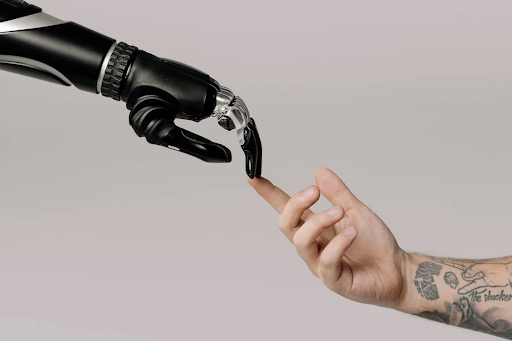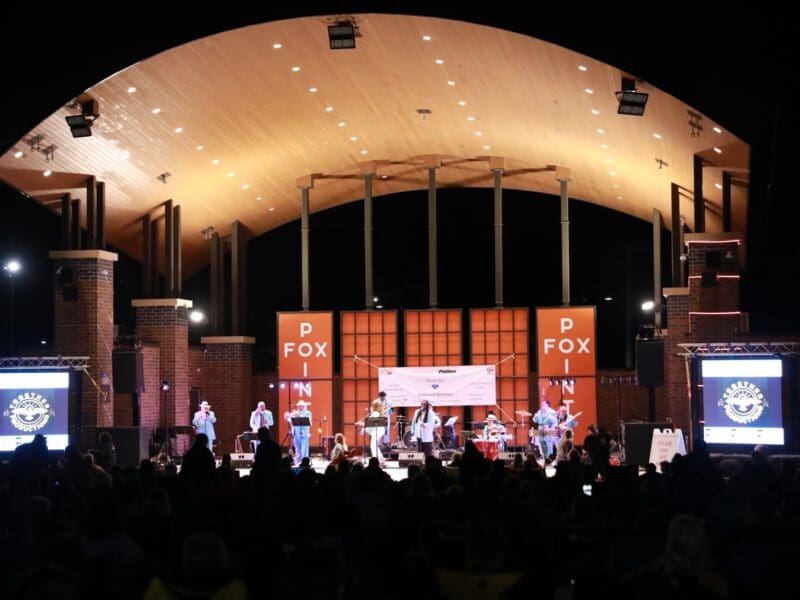
From Composition To Distribution: The Impact Of AI On The Music Industry
Music has been an integral part of human culture for centuries, always at the cutting edge of technological developments. From the invention of the phonograph to digital music streaming services. How we create, distribute, and consume music has undergone profound shifts.
Artificial Intelligence (AI) in the music industry is a relatively recent innovation. But it’s taken the industry, and the world, by storm. AI has already immensely impacted every aspect of production and distribution within this space, showing no signs of stopping. And its potential is truly limitless.

The Evolution Of Music Composition And Distribution
The music industry has come a long way since the days of sheet music and vinyl records. Composers would spend weeks crafting new tunes, while producers spent endless hours studying data to predict which songs would succeed in the market. Back then, music distribution was limited to physical copies available through record labels and music stores.
Digital music has never been more accessible or widely distributed than it is now, thanks to advances in digital technology. But creating original material still takes significant effort and creativity. This is where AI technology comes into play. AI holds the potential to revolutionize how we create and distribute music forever.
In short, AI is changing the world.
AI-Generated Music Versus Human-Created Music
AI technology enables musicians to craft new music quickly. Companies like Amper Music and AIVA are already using it to develop AI tools that can create melodies across a range of genres.
AI-generated music is created through algorithms that analyze data to create new music. This process has drastically shortened the creation time from weeks to just a few hours, making it less expensive to produce for independent musicians. Leading to democratization in the music industry, enabling more creators to develop and distribute their works.
AI-generated music has not been without controversy. While some criticize its lack of human touch and emotional depth, others see AI music as a means to create exciting new sounds previously impossible.
What Impact Will AI Have on Music Production?
The effects of AI on music production, discovery, and distribution have been profound. It’s changed everything about the process.
However, the use of AI in music also raises ethical concerns. One such problem relates to who owns the rights to AI-generated music: is it the programmer who created it, the musician who used that algorithm, or even the AI itself?
Another concern is the impact of AI on the music industry workforce. While AI can make operations more efficient and cost-effective, it could also result in job loss within this field. Musicians and producers could be replaced by algorithms, leading to a loss of creativity and diversity.
There are worries about AI’s effect on music as a whole. Will AI lead to the homogenization of sounds, with all songs sounding similar? Will computer-produced music lack human emotional depth and creativity?
As the use of AI in the music industry continues to expand, it’s essential to address ethical concerns and ensure its advantages are balanced with potential risks. However, despite these worries, the use of AI within this sector is only expected to expand over the coming years.
What Are the Advantages of Utilizing AI in Music Production?
Contrary to what some may think, AI-generated music has numerous advantages that make it a worthwhile addition to music production.
- Most importantly, AI saves time, effort, and money.
- AI uses data to pinpoint what makes songs popular.
- It can identify market trends so producers can capitalize on them.
- All in all, this makes AI an invaluable asset for discovering new sounds.
But it doesn’t stop there. When it comes to distribution and marketing, AI offers new possibilities for artists. AI-powered music streaming services like Spotify or Apple Music use algorithms that suggest music based on users’ listening habits – giving musicians access to potential new fans who might never have discovered them otherwise.
AI can even assist with targeted advertising and marketing. By analyzing user behavior and preferences data, marketers can craft ads that are more likely to appeal to their target audience. This helps musicians promote their music more efficiently and reach a wider audience.
Technology is being adopted by businesses and industries around the globe, from being able to create chatbot to producing art – its potential and implications are enormous.

AI Music Tools And Software Are Now Available For Artists
Despite ethical questions surrounding AI in music, there’s already a range of tools and software designed specifically for artists that utilize this technology.
Here are ten remarkable AI-powered music tools and services that can assist you with everything from creating new music to marketing it:
-
Amper Music
Amper Music is an AI-powered music composition platform that empowers musicians and content creators to quickly and easily craft original compositions. The platform offers diverse styles, genres, and moods; plus, all output is royalty-free.
-
AIVA
AIVA (Artificial Intelligence Virtual Artist) is computer-aided composition software specializing in crafting original compositions across a range of styles and genres. Plus, AIVA learns from your taste in music to create custom pieces tailored specifically for you.
-
Landr
Landr is an AI-powered mastering platform that enables musicians to upload their tracks and receive a professionally mastered version within minutes. Landr’s AI algorithms analyze each track’s genre and style before applying mastering techniques tailored specifically for it.
-
iZotope
iZotope is an AI-powered mixing and mastering software that provides advanced audio processing tools to enhance your music. Its AI features analyze your track, suggesting the ideal EQ settings, compression ratio, and other effects for a professional-sounding mix.
-
Spotify For Artists
Spotify for Artists is an AI-powered system giving power back to the artists. Through it, you can promote music, monitor streams, and gain insight into listeners. Taking advantage of Spotify’s AI-driven algorithms gives you the ability to reach new fans and increase your music’s visibility.
-
Apple Music For Artists
Like Spotify, Apple Music for Artists will allow you to monitor your music’s performance and reach potential new fans. From this service, you’ll get real-time analytics, personalized insights, and tools to help promote your work.
-
Amadeus Code
Amadeus Code is an AI-powered music composition app empowering musicians to craft new melodies. The app suggests unique musical ideas tailored to your taste and preferences through machine learning algorithms.
-
Magenta Studio
Magenta Studio is an AI-driven music software suite by Google giving musicians machine-learning techniques for composition and production. Magenta Studio provides musicians with an expansive suite of tools to compose, mix and arrange music easily.
-
Jukedeck
Jukedeck is an AI-driven music composition platform that empowers musicians and content creators to craft original compositions for media projects. Through machine learning algorithms, the platform generates music tailored to your desired style and mood.
-
Melodrive
Melodrive is an AI-powered music composition system that gives musicians the power to craft captivating soundtracks for video games and virtual reality experiences. It utilizes machine learning algorithms that adjust music according to player actions and the environment within a game.
Are you a musician seeking to craft new sounds, promote music, or enhance audio quality? Well, these AI-driven music tools and services can assist in reaching your objectives in this competitive industry.
Give them a shot and see how they can revolutionize the music-making process.
Beyond Music: The Expanding Applications Of AI
AI technology continues to advance at an incredible rate, and its applications now span far beyond music production. From healthcare and finance to transportation and manufacturing, AI is revolutionizing various sectors by automating processes, increasing accuracy, and providing new insights.
Healthcare
AI-enabled healthcare tools are increasingly employed for diagnosis and treatment planning. For instance, AI algorithms can analyze medical images to detect abnormalities, while 3D models of organs created through surgery can offer assistance during operations.
Transportation
AI is employed for self-driving cars, traffic prediction, and logistics optimization. AI algorithms can analyze traffic data and suggest efficient routes for delivery or transportation.
Finance
This sector has adopted artificial intelligence (AI) algorithms for fraud detection, risk management, and trading. AI-powered chatbots and virtual assistants are becoming increasingly popular in customer service roles and financial advice.
Manufacturing
AI-enabled robots and automation tools are employed for assembly line tasks, quality assurance checks, and predictive maintenance. Plus, these algorithms can potentially optimize energy consumption and reduce waste production throughout various production processes.

Conclusion: What’s Ahead for This Industry?
AI in music is still in its early stages, yet its potential is endless. And there’s no sign of slowing down anytime soon – AI has already had an immense impact on all aspects of production and distribution within this sector, leaving us only optimistic for its continued growth into the future.
As AI technology becomes more widespread, addressing ethical concerns surrounding its use in music production, distribution, and marketing is essential. AI has provided musicians with new possibilities and made it simpler for them to reach a wider audience.
The future of AI in the music industry looks bright, though. We can expect even greater innovation and development over the coming years. While some may still question its usefulness now, further advancement could solve those problems and open up even more exciting new possibilities.
No matter your position in the music industry – musician, producer, or fan – AI will have an immense effect on how we create, distribute, and consume music in the future.







